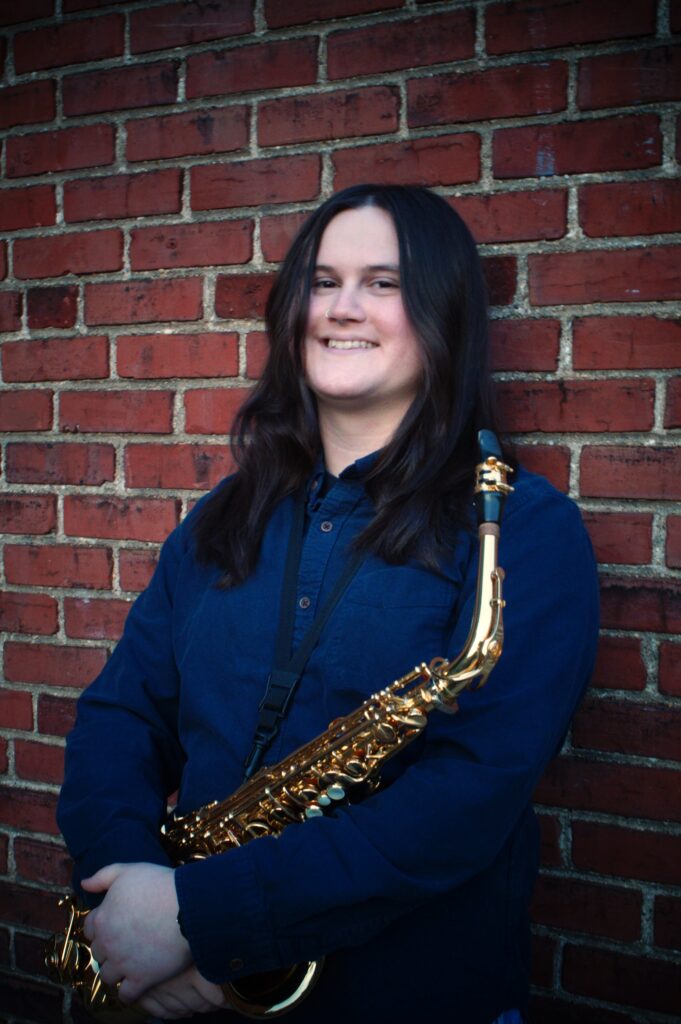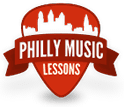
Saxophone, Clarinet, Bass, Guitar, Ukulele, Trumpet, Trombone, Tuba, Flute
Drew Walker
She/Her
Music Education, University of Maryland
Classical, Pop, Rock, Folk
Hi! My name is Drew Walker, I am an educator and multi-instrumentalist from Towson, MD. I studied Music Education at the University of Maryland, with a concentration in classical saxophone. I began teaching in Maryland public schools shortly after graduating, a position which I held for 5 years. I have also gigged in the DC metro area from the time I moved there for college up until my recent move to Philadelphia, primarily playing bass and synthesizers in rock and funk bands.
My teaching style blends my classroom experience with my background as a self-taught musician. Every student is different, which means each will benefit from an approach that appeals to their learning style and makes the most of their strengths. I also believe that technical proficiency with an instrument is just the tip of the iceberg; a well-rounded approach that incorporates theory, expressivity, and music appreciation is the best path to becoming a well-rounded musician. Musicianship contains multitudes, and helping students find the aspects of it that they can feel passionate about is one of the greatest joys of teaching.
When did you begin playing saxophone, and why?
I began playing saxophone in elementary school. I enjoyed the sound it made, and I liked the music I had heard performed on saxophone. Since then, it’s connected me to all kinds of music, both as a musician and a listener.
What other instruments do you play, and what is your experience with them?
My most active instrument is bass guitar, which I play in a couple rock and metal bands around Philadelphia. I started playing when I was 13, parallel to my study of the saxophone. I mostly learned by ear, teaching myself the riffs from my favorite bands at the time. Playing bass was one of my biggest motivators for improving on saxophone as well, and without this experience I doubt I would have pursued music education as a career.
I also play clarinet, and have had ensemble experience playing bass clarinet in both high school and college. Beyond that, studying music education in college afforded me the opportunity to learn other common band and orchestra instruments, such as trumpet, trombone, and flute. Since then, I have played each of them frequently during my time as an elementary school band director.
What are your personal goals as a musician?
My personal goal is to make the music I enjoy, and push my musical boundaries when given the opportunity.
Do you have a memory of a time when a musical concept or technique really clicked? Something you’ll remember forever?
My saxophone professor taught me about the push and pull involved in the timing of musical phrases, executed while maintaining consistent tempo. The role of feel in dictating how a melody comes across is subtle, but powerful, and it has influenced how I play in both solo pieces and in group performances.
What is your favorite piece of advice from one of your past (or current) teachers?
Practice slow enough that you make no mistakes, then do it three times in a row. If you can do that, only then increase the tempo.
What was your most challenging moment learning an instrument
The most challenging period of my musical progression started when I began studying music in college. I had to change my practice routine significantly, both in how I structured my practice as well as the amount of hours spent practicing each week. Adapting to that new environment was an important milestone in my study of music.
What is your biggest musical achievement?
The most important and meaningful outcome of my efforts as a musician has to be the community of friends and colleagues I’ve gained over the years.
Favorite thing about teaching?
My favorite part of teaching is the moments where students really discover something they care about through the discipline of studying an instrument; whether that is music performance, appreciating a genre they have never listened to before, writing their own music, jamming with others, etc. A lot goes into the study of music, and helping students find the thread they are most passionate about is what brought me to this profession.
What is a piece of advice you would like to share with anyone learning music?
Consistency is the most important factor when learning an instrument. Short practice sessions each day will go further than a long practice once or twice a week.
